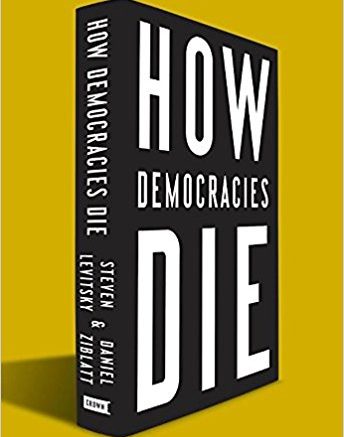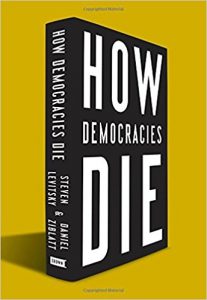“In the darkest days of the Second World War, when America’s very future was at risk, writer E.B. White was asked by the U.S. Federal Government’s Writers’ War Board to write a short response to the question “What is democracy?” His answer was unassuming but inspiring. He wrote:
“Surely the Board knows what democracy is. it is the line that forms on the right. It is the “don’t” in don’t shove. It is the hole in the stuffed shirt through which the sawdust slowly trickles; it is the dent in the high hat. Democracy is the recurrent suspicion that more than half of the people are right more than half of the time. It is the feeling of privacy in the voting booths, the feeling of communion in the libraries, the feeling of vitality everywhere. Democracy is the letter to the editor. Democracy is the score at the beginning of the ninth. It is an idea which hasn’t been disproved yet, a song the words of which have not gone bad. It’s the mustard on the hot dog and he cream in the rationed coffee. Democracy is a request from a War Board, in the middle of a morning in the middle of a war, wanting to know what democracy is.”
“The egalitarianism, civility, sense of freedom, and shared purpose portrayed by E.B. White were the essence of mid-twentieth-century American democracy. Today that vision is under assault. To save our democracy, Americans need to restore the basic norms that once protected it. But we must do more than that. We must extend those norms through the whole of a diverse society. We must make them truly inclusive. America’s democratic norms, at their core, have always been sound. But for much of our history, they were accompanied — indeed, sustained — by racial exclusion. Now those norms must be made to work in an age of racial equality and unprecedented ethnic diversity. Few Societies in history have managed to be both multiracial and genuinely democratic. That is our challenge. It is also our opportunity. If we meet it, America will truly be exceptional.”
— Steven Levitsky & Daniel Ziblatt, “How Democracies Die”, 2017 (pp. 230-231)


